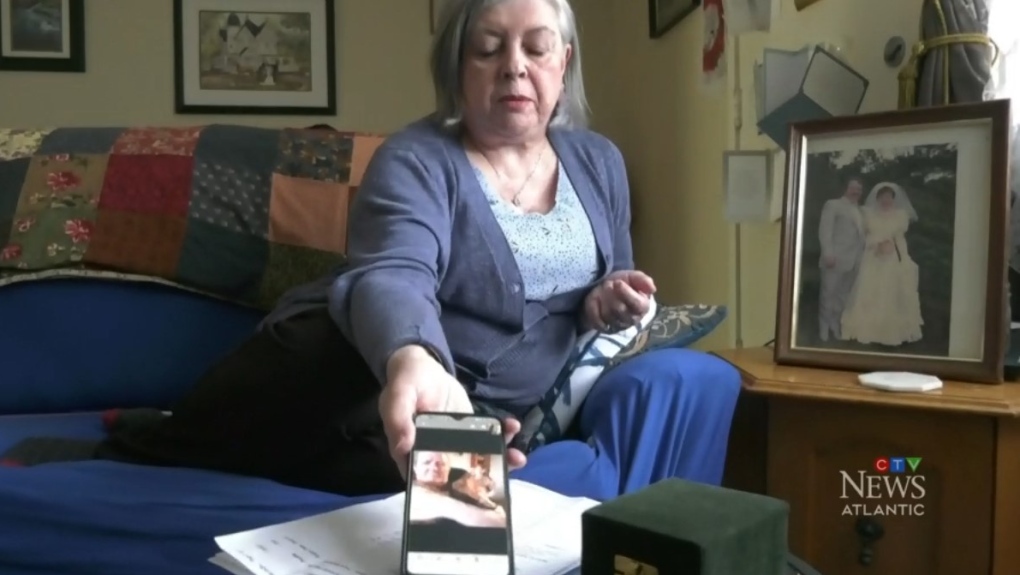Nova Scotia widow blasts bank for denied life insurance claim – CTV News Atlantic

DARTMOUTH, N.S. –
The sudden death of her 65-year-old husband of a heart attack in January has been traumatic for Deborah MacDonald.
“He was going to move the car, you expect him back in five or 10 minutes,” she says with tears welling in her eyes. “I didn’t kiss him goodbye.”
Dealing with all the paperwork required when a spouse passes away, MacDonald soon discovered that Terrance had taken out a guaranteed life insurance plan almost two years before.
“So, we finally got the policy number, and found who to deal with the claim and everything and then we sent everything, and then we went from there,” she says.
But RBC Life Insurance told her, her claim was denied. It said in an email she wouldn’t receive the $10,000 death benefit, because her husband died January 30 – two days short of the plan’s two-year anniversary.
According to a clause in the insurance contract, “if the life insured dies prior to the second (2nd) policy anniversary, the death benefit will be limited to the sum of premiums paid.”
That means, instead, MacDonald received about $1,385.
“Now I’m thinking, can I live here? Can I stay here? I was counting on that insurance money to even things out,” she says.
The Canadian Life and Health Insurance Association says this type of policy is typically offered to people who don’t quality for standard life insurance often due to health issues.
In an email to CTV, it says, “For graded policies, there is a waiting period before the full benefit is payable. Any claims made prior to the waiting period will result in a lower amount paid out.”
It adds, “The waiting period allows insurers to be able to offer graded policies at an affordable cost to the individual.”
MacDonald says her husband did have some heart issues but was still working and doing fine.
When asked by CTV for comment, RBC did not provide an interview, instead only sending a statement, which reads in part:
“A two-year waiting period applies to this type of policy as there is no medical underwriting completed upon purchase and after the two year waiting period is over, coverage is in effect. This is standard practice across the industry.”
“It’s a fairly restrictive policy,” says Gordon Allen of Allen Law Inc., who deals with insurance and injury law matters.
He advises one option would be to obtain the original application from the insurer, to check for discrepancies between that and the final contract.
Allen says a case like this can also come down to the communication between the client and the insurer, and whether all the terms were outlined clearly.
But unlike auto insurance, life insurance terms aren’t standardized by Nova Scotia’s Insurance Act, meaning they can vary depending on who you’re dealing with.
“For that reason, I think with life insurance, one really has to scrutinize what the contract is and are you getting the value you think you’re paying for, are there a number of outs for the insurer to get out of paying you,” said Allen.
There are also several non-profit, non-partisan insurance dispute resolution organizations that can help if a consumer is unsatisfied with the outcome of the insurance company’s own internal complaints process.
“Once you go through that process, your life or health insurer will give you a final position letter,” says Tim Wilson, the head of Public Education for the OmbudService for Life and Health Insurance, one such organization. “Once you have that final position letter, you can submit a complaint (with us) online.”
“Our role is to be an independent, third-party that can review a complaint and review both sides,” says Wilson. “We look at the original policy that you purchased from your insurer and look at what the insurer did, and the particular situation, and the we’ll make an assessment of that.”
MacDonald says she’s not done fighting for her claim.
“I’m very disappointed,” she says. “(RBC) didn’t even call me.”
She says she just wants to get what her husband of almost 30 years wanted – the benefit from the insurance plan he paid into to take care of her, after he was gone.




